Chillers are popular in all walks of life and are a very good cooling tool. The existence of industrial chillers can improve production efficiency, so choosing the right chiller is particularly important. In industrial production, machines are often shut down due to overheating. At this time, industrial chillers come into play, so chillers cannot be ignored in industrial manufacturing.
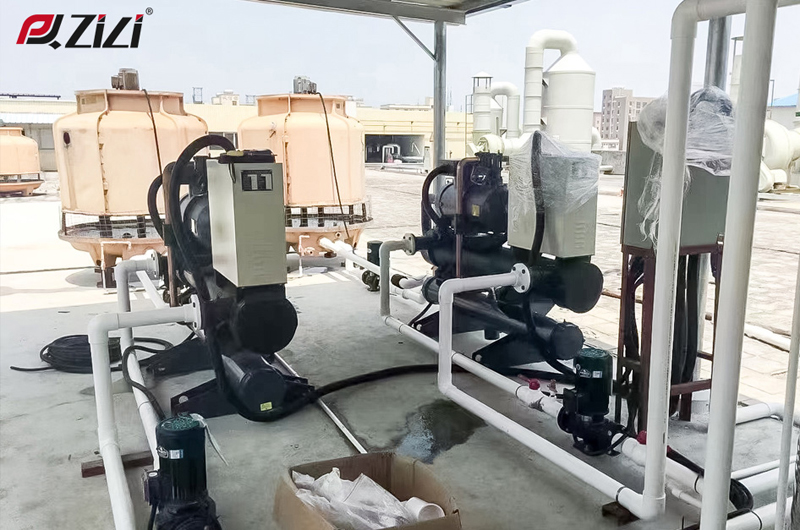
Energy Efficiency and Cost-Effectiveness: A chiller that fits the needs can provide the required cooling capacity while operating with minimal energy consumption. This can reduce energy bills and improve the cost-effectiveness of the system. If you are not sure what size machine is suitable for you, you can consult our company immediately and we will calculate and design a solution that suits you.
System stability: A correctly selected industrial chiller can ensure stable system operation and avoid problems caused by insufficient or excess cooling capacity, such as temperature control failure or equipment damage.
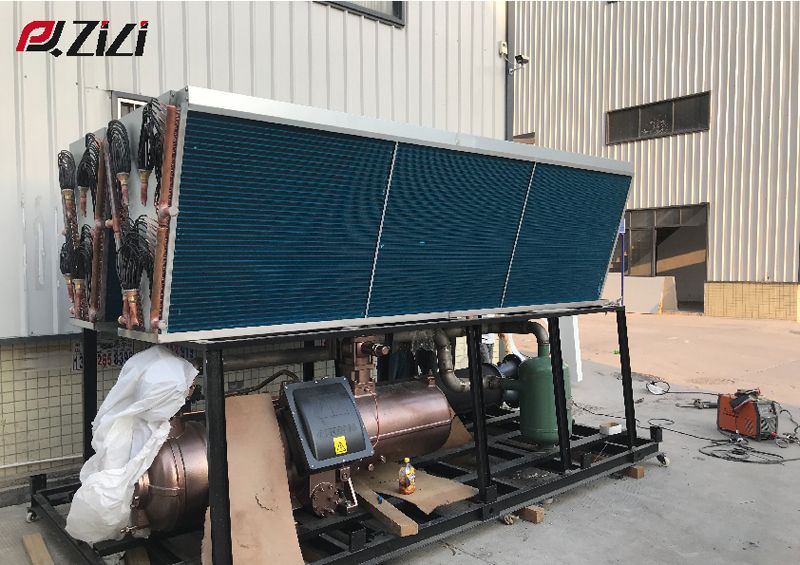
Sustainable development: Highly energy-efficient chillers usually mean less energy consumption and emissions, helping to reduce the impact on the environment and comply with the requirements of sustainable development.
Adaptability and reliability: Choosing a chiller that suits actual needs can improve the adaptability and reliability of the system, prevent overload operation, etc., reduce the possibility of maintenance and failure, and extend the service life of the equipment.
The installation of chillers also has certain requirements. As we mentioned in the previous article, there are different installation requirements for air-cooled and water-cooled chillers.The working position of the water chiller is also different in winter and summer,air-cooling needs to be installed in a ventilated place to ensure heat dissipation, while water-cooling requires A certain amount of space is required to install a water-cooled cooling tower system. You can choose based on the type of process fluid used, process cooling temperature, flow and pressure requirements, operating environment, ambient temperature, required chiller size and space constraints of its location, etc. A chiller that you need to install yourself.
The temperature of the chilled water is also one of the conditions for selecting a chiller. The set point temperature will affect the cooling capacity of the chiller. Lowering the temperature will put a greater load on the refrigeration system, and vice versa. There is a direct relationship between the set temperature of the chiller and its total cooling capacity.
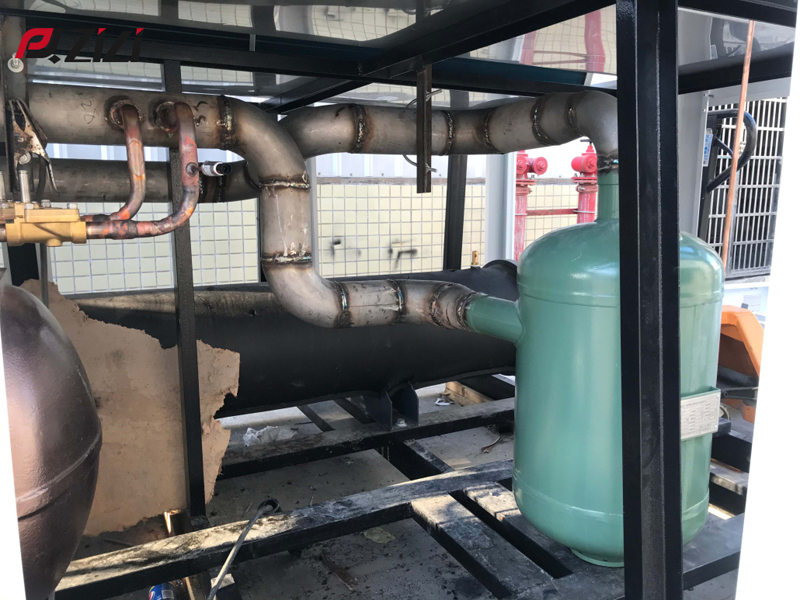
Therefore, when purchasing a chiller, you should check whether the power of the machine to be cooled matches the chiller. If the chiller is used outdoors or in a non-closed circulation environment, the anti-freeze protection required for the chilled water is equally important.
When choosing the chiller you need, you also need to observe the configuration of the chiller pump. Although the service life of the pump is the primary consideration when configuring an industrial cooling system, the pressure performance of the pump is equally important.
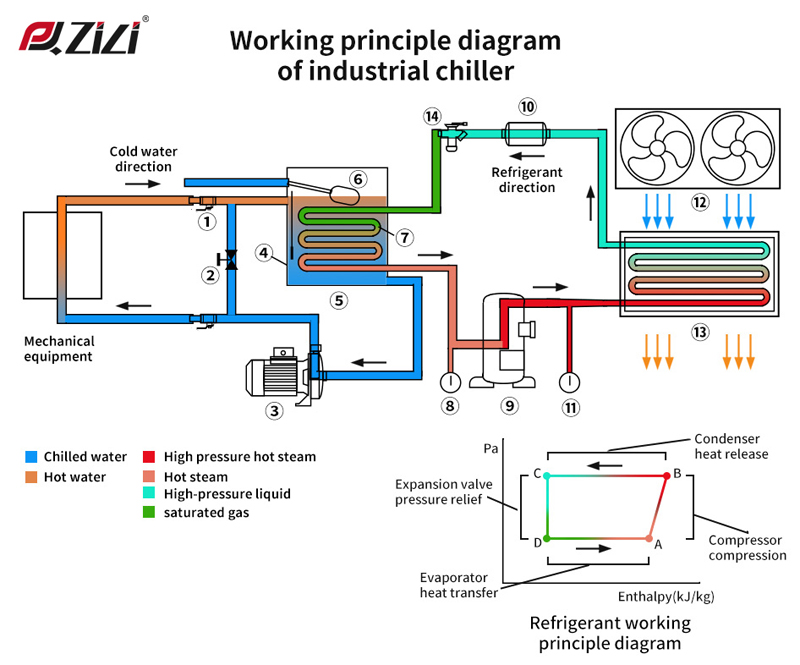
A pump with too little pressure will reduce water flow throughout the cooling circuit. If the chiller is equipped with an internal pressure relief device to cooperate with the pump, the cooling water will be diverted in the process and returned to the cooler.
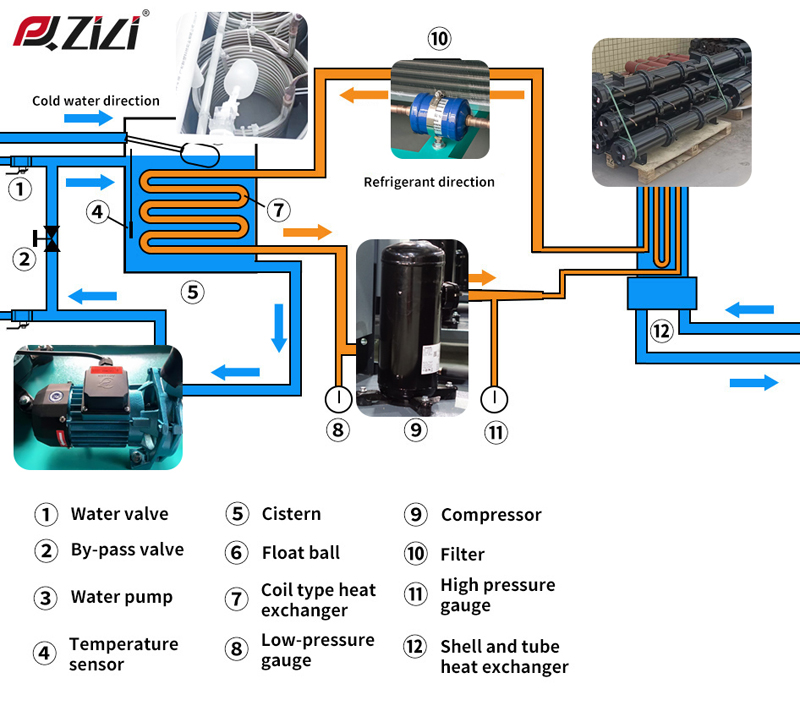
If the chiller has no internal pressure relief and the pump pressure is too low, the pump will try to provide the necessary pressure while operating under pressure or restriction. When this happens, the life of the pump is drastically shortened; the cooling water stops flowing, and the liquid in the pump heats up, eventually evaporating and destroying the pump’s cooling capabilities, causing excessive wear on bearings, seals, and impellers.
When the water flows through the pump, insufficient water flow will also lead to insufficient heat transfer of the pump. At this time, the water flow will not take away the heat required during operation.
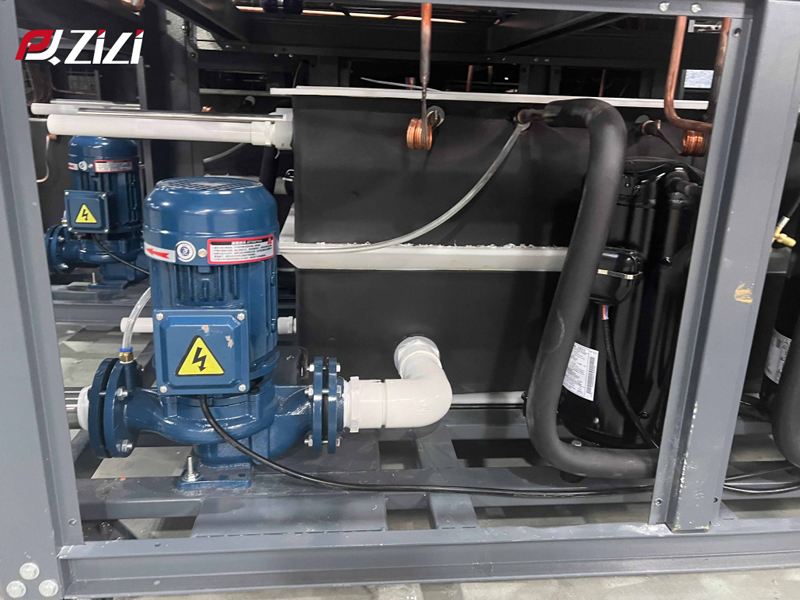
When the cooling water temperature rises beyond the set point, the surface/component temperature will also continue to rise, and the cooling effect will be greatly reduced. And typically most industrial chiller systems will specify pressure and flow requirements. When specifying necessary heat load removal as part of the design, it is important to consider all hoses, fittings, connections, and height changes in the system to select the appropriate pump for the chiller.
To sum up, it is very important to choose an excellent chiller, and a good chiller requires many aspects of consideration. From the pump to the chilled water flow, it needs to be designed, which will help determine the optimal flow rate in the system. required functionality.
In summary, considering all of these factors, recognizing the important technological advancements, and the availability of chiller suppliers that incorporate these technologies into their products all help determine the best industrial cooling system for any given application.